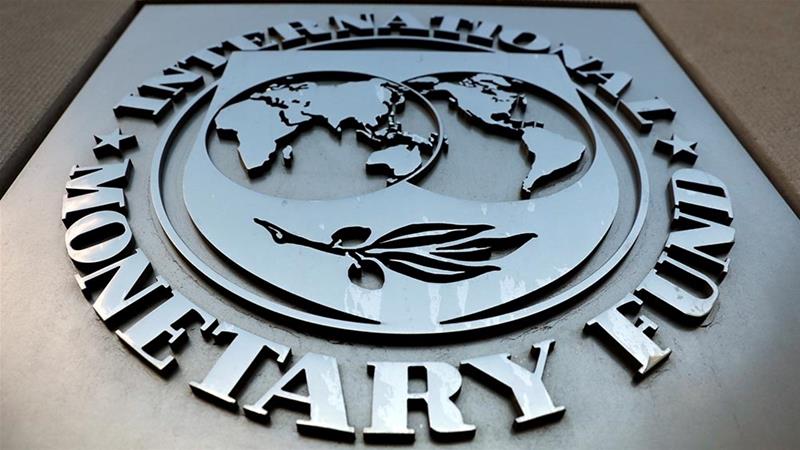COVID 19: There Will Be Economic Recession In Nigeria- IMF
The cumulative loss to global GDP over 2020 and 2021 from the crisis could be around $9 trillion, greater than the economies of Japan and Germany combined.
For the sub-Saharan African region, the IMF, in its latest World Economic Outlook report, projected a contraction of -1.6 per cent, with Nigeria topping the chart with a negative growth of -3.4 per cent, indicating a looming recession for a country that is just recovering from one.
Indeed, the negative growth is hinged on plummeting oil prices and food inflation, even as the latest report deviates from the IMF’s earlier projection of 2.5 per cent growth for 2020 and 2021.
Finance Minister Zainab Ahmed had warned that Nigeria could fall into its second recession in five years if drastic actions were not taken to cushion the economic blow. She estimated this week that the economy could shrink as much as 3.4 per cent this year without a massive stimulus plan that includes billions in Central Bank, Federal Government and international support.
The warning came as the IMF began considering Nigeria’s emergency request for $3.4 billion in funding and the World Bank, from which the country has sought up to $2.5 billion, released $82 million to strengthen the country’s healthcare infrastructure.
According to the IMF, effective policies are essential to forestall outcomes which may be much worse than during the 2008-09 financial crisis, even though Nigeria might be repeating the 2016 recession chronicles, having failed to do anything different in terms of diversification and building buffers for moments like this.
If necessary measures to reduce the contagion and protect lives are taken, the IMF noted that a short-term toll on economic activity is expected and would aid the country’s recovery by 2.5 per cent in 2021. It said that in a baseline scenario (assuming that the pandemic fades in the second half of 2020 and containment efforts can be gradually unwound), the global economy is projected to grow by 5.8 per cent in 2021 as economic activity normalizes, helped by policy support.
Already, President Muhammadu Buhari, on Monday, while extending the lockdown, directed the Ministers of Industry, Trade and Investment, Communication and Digital Economy, Science and Technology, Transportation, Aviation, Interior, Health, Works and Housing, Labour and Employment and Education to jointly develop a comprehensive policy for a “Nigerian economy functioning with COVID-19.”
The IMF said: “The risks for even more severe outcomes, however, are substantial. Effective policies are essential to forestall the possibility of worse outcomes, and the necessary measures to reduce contagion and protect lives are an important investment in long-term human and economic health.
“Because the economic fallout is acute in specific sectors, policymakers will need to implement substantial targeted fiscal, monetary, and financial market measures to support affected households and businesses domestically.
“And internationally, strong multilateral cooperation is essential to overcome the effects of the pandemic, including to help financially constrained countries facing twin health and funding shocks, and for channelling aid to countries with weak health care systems.
“Economic policies will also need to cushion the impact of the decline in activity on people, firms, and the financial system; reduce persistent scarring effects from the unavoidable severe slowdown, and ensure that the economic recovery can begin quickly once the pandemic fades.”




